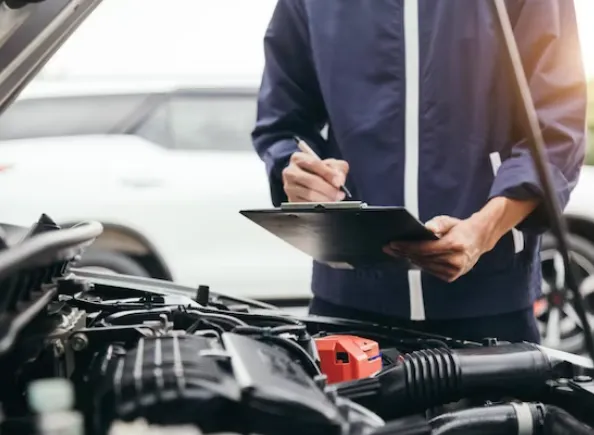Latest News

Maximizing Fuel Efficiency through Maintenance: Save Money on Gas with Proper Vehicle Care
In today's world, where fuel prices seem to perpetually be on the rise, maximizing fuel efficiency has become a priority for most drivers. While upgrading to a more fuel-efficient vehicle is an option, it's not always the most practical or affordable solution. The good news is that you can significantly boost your vehicle's fuel efficiency and save money on gas through proper maintenance. In this blog, we'll explore the importance of regular maintenance, including routine oil changes, in achieving optimal fuel economy.
Regular Oil Changes: The Heart of Fuel Efficiency
Think of your vehicle's engine oil as its lifeblood. Regular oil changes are crucial for maintaining a healthy engine, which, in turn, contributes to better fuel efficiency. Here's how it works:
a. Reducing Friction: Engine oil acts as a lubricant, reducing friction between moving parts. When the engine runs smoothly, it doesn't have to work as hard, and this results in improved fuel efficiency.
b. Cleaning the Engine: Over time, engine oil collects dirt and debris. Dirty oil can clog critical components, making the engine less efficient. Regular oil changes ensure that your engine stays clean and efficient.
c. Proper Lubrication: Inadequate lubrication can cause excessive wear and tear on the engine, leading to decreased fuel efficiency. Fresh oil ensures proper lubrication, reducing the strain on your engine.
Keep Your Engine Air Filter Clean
Your vehicle's air filter plays a significant role in fuel efficiency. It prevents contaminants like dust and dirt from entering the engine, ensuring a clean air supply for combustion. A clogged or dirty air filter can reduce your engine's efficiency, leading to increased fuel consumption. Replace the air filter according to your vehicle manufacturer's recommendations or sooner if you drive in dusty conditions.
Maintain Proper Tire Pressure
Underinflated tires can have a surprisingly large impact on fuel efficiency. When your tires are not properly inflated, the rolling resistance increases, which means your engine has to work harder to move the vehicle. This extra effort results in decreased fuel efficiency. Check your tire pressure regularly, and inflate them to the recommended levels as specified in your vehicle's manual.
Smooth Driving Habits
How you drive can also have a substantial effect on your fuel economy. Aggressive driving, such as rapid acceleration and hard braking, can burn more fuel than smooth, controlled driving. To maximize fuel efficiency:
Accelerate gradually and maintain a steady speed.
Anticipate stops and decelerate gradually instead of slamming on the brakes.
Use cruise control on highways to maintain a constant speed.
Regular Maintenance Checks
In addition to the specific tips mentioned above, regular vehicle maintenance checks are essential for optimal fuel efficiency. This includes keeping up with scheduled maintenance intervals for your vehicle, such as spark plug replacements, fuel system cleanings, and emission system checks. A well-maintained vehicle is more likely to operate efficiently and deliver better mileage.
Conclusion
Maximizing fuel efficiency through maintenance is a smart and cost-effective way to save money on gas and reduce your carbon footprint. Regular oil changes, clean air filters, proper tire pressure, and smooth driving habits are all integral parts of this fuel-saving strategy. By investing in your vehicle's health and performance, you'll not only enjoy better fuel economy but also extend the lifespan of your car. So, don't wait – start prioritizing maintenance today and watch your fuel efficiency soar while keeping your wallet happy.




